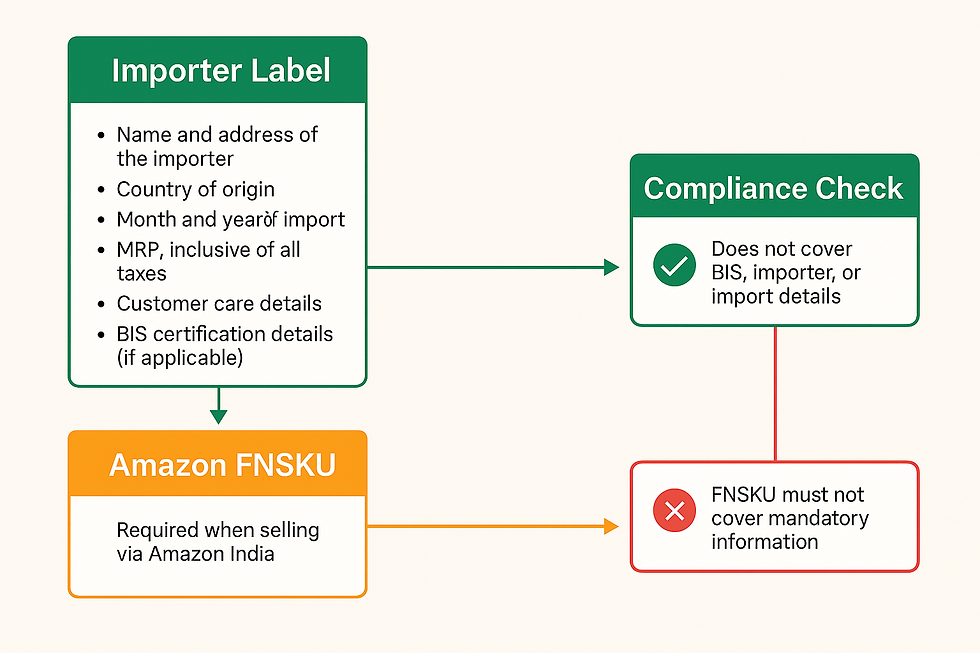Diwali : The Festival of Lights and its Importance for E-Commerce and Brands Selling in India
- Ajay Miglani

- Sep 19, 2025
- 2 min read

What is Diwali?
Diwali, also known as the Festival of Lights, is one of the most significant festivals in India and among Indian communities worldwide. Celebrated over five days, it symbolizes the victory of light over darkness and good over evil. Families decorate their homes with lamps (diyas), exchange gifts, wear new clothes, and enjoy festive foods.
Traditionally, Diwali is also a time for renewal and prosperity—a period when households invest in gold, jewelry, home décor, electronics, and other durable goods. The spirit of generosity, coupled with cultural rituals of buying new items, makes Diwali one of the most commercially active periods in India.
Why Diwali Matters for E-Commerce and Brands
For businesses, Diwali is more than a cultural celebration—it’s a sales opportunity on par with Black Friday and Christmas in Western markets. According to industry reports, online and offline retail sales see a surge of 20–40% during the festive period. The festival influences both B2C and B2B markets in unique ways:
1. B2C (Business to Consumer)
High Consumer Spending: Shoppers actively look for discounts, offers, and bundles on electronics, fashion, home appliances, furniture, and personal care products.
Gift Culture: Gift hampers, sweets, personalized products, and luxury goods peak in demand. Brands that offer ready-to-gift packaging or curated bundles gain traction.
Digital-First Shopping: With the rise of Amazon, Flipkart, and D2C brand websites, consumers increasingly rely on e-commerce platforms for festive shopping. Mobile-first campaigns and regional language ads resonate deeply with buyers across India.
Emotion-Driven Marketing: Campaigns that tap into family togetherness, nostalgia, and festive emotions create stronger brand recall.
2. B2B (Business to Business)
Corporate Gifting: Companies order Diwali hampers, branded merchandise, and luxury items for employees, clients, and partners. This segment is a significant contributor to bulk sales.
Channel Incentives: Brands incentivize distributors, dealers, and resellers during Diwali with reward programs, volume discounts, and bonus stock.
Inventory & Supply Chain Planning: Retailers and wholesalers increase inventory ahead of Diwali. For brands, aligning production, warehousing, and logistics is crucial to avoid stockouts during peak demand.
How Brands Can Plan Ahead
To maximize the Diwali opportunity, e-commerce players and brands should:
Start Early: Festive campaigns and stock planning should begin at least 2–3 months in advance.
Design Special Offers: Bundled deals, festive discounts, and limited-edition packaging can drive impulse purchases.
Optimize Digital Marketing: Leverage social media, influencer campaigns, and localized ads to connect with diverse Indian audiences.
Strengthen Logistics: Ensure robust supply chain readiness—warehousing, last-mile delivery, and returns handling.
Tap Corporate Demand: Create catalogues and bulk-order options tailored for businesses looking for corporate gifting solutions.
Diwali is not just a festival—it is an economic engine that drives consumption, gifting, and celebration across India. For brands, both B2C and B2B, recognizing the cultural and commercial importance of Diwali and planning strategically can unlock significant growth. Those who prepare early, align with festive sentiment, and deliver on customer expectations stand to benefit the most.




